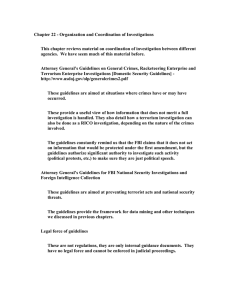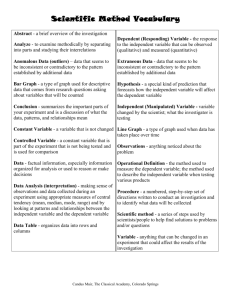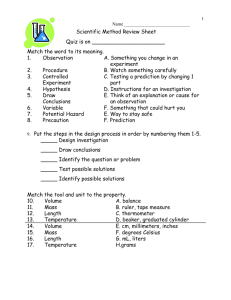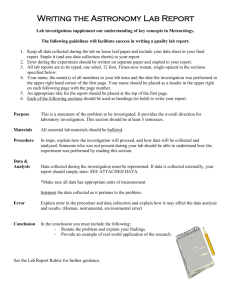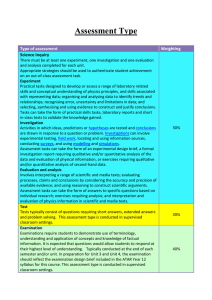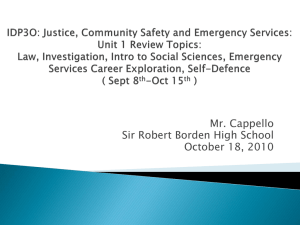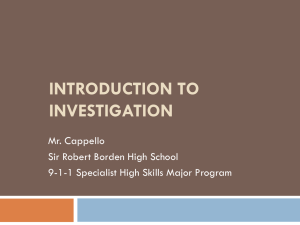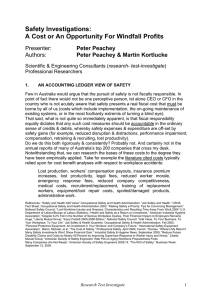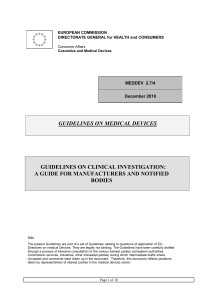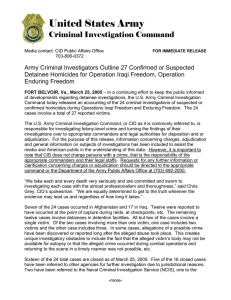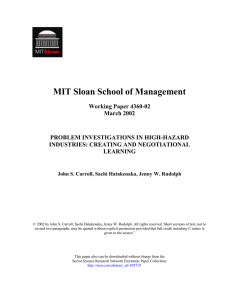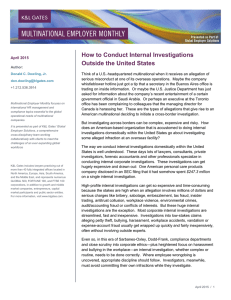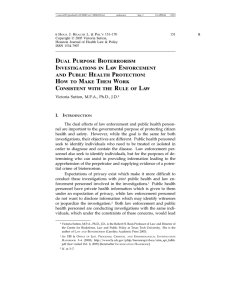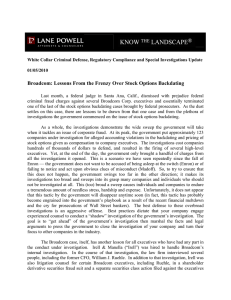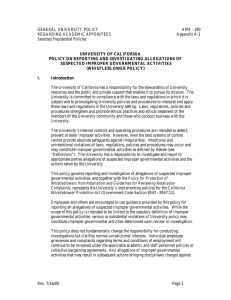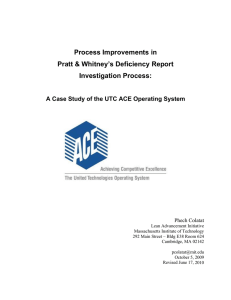AP Biology Lab Reporting Requirements
advertisement
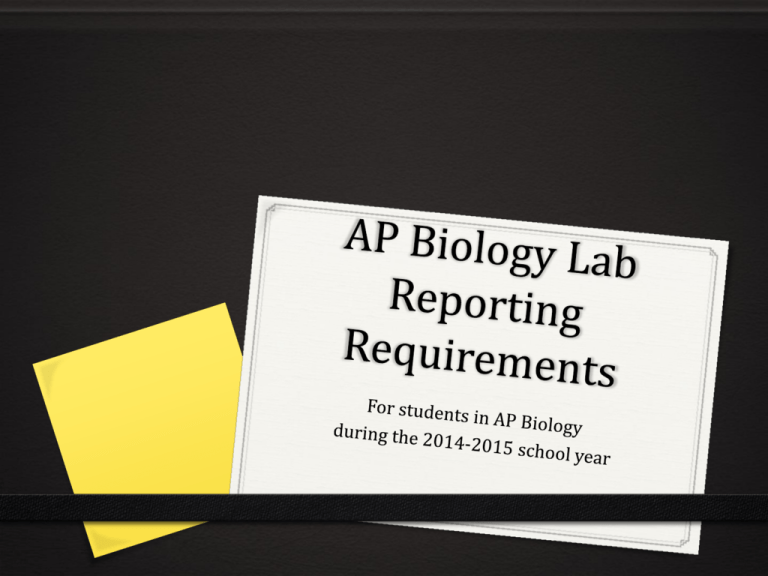
Please take a gold lab reporting packet 0 This will be your primary reference for use when completing a laboratory investigation. 0 I would suggest using a laboratory notebook with paper to take notes during the investigation. 0 You will be expected to complete a formal lab report that you will turn into ME upon completion of the lab. This report will be typed…more info to come. 0 You will take a lab “ASSESSMENT”, using your formal lab report, that will account for a +20 point grade in SIS. Lab Requirements: INTRODUCTION 0 Purpose: State the aim for the investigation. It should be clear and concise. 0 Hypothesis: It needs to be a clear and exact description of might happen and why. Your prediction should be written with an “If…Then…Because” statement. 0 Biology Breakdown: This is relevant and necessary background information needed to understand the biological concepts observed. This can include definitions of pertinent vocabulary and diagrams illustrating the ideas. 0 Lab Criteria: A detailed description of the variables in the laboratory. Independent and dependent variables, along with the controls, should be identified and described. MATERIALS and METHOD(S) 0 Equipment: List all equipment used during the investigation. Give the size of beakers, measurements (volume, mass, molarity, etc.) and measuring devices, and all materials necessary to carry out your investigation. 0 Procedure: Describe the steps taken during the lab. It should be written in PAST TENSE, describing how you did the lab, not how you SHOULD do the lab. DATA COLLECTION 0 Data and Observations: Record all of your raw data in tables. The tables should be numbered to reference during the data processing, conclusion and evaluation and have headings to briefly describe the contents. Titles, units and uncertainty should be given in the headings of each table. Time (minutes) 0 1 2 3 4 O2 (ml) DATA PROCESSING 0 Graphical Analysis (when applicable): Graphs should have a caption describing the contents of the graph. The axes need to be labeled with correct units and the points plotted correctly. Most data will use a scatter plot graph with a best fit line. CONCLUSION 0 Criteria Response: Discuss the results you obtained in relation to your hypothesis. Write a conclusion based on an interpretation of the gathered results. EVALUATION Method Evaluation: Identify the strengths and weaknesses in the method used. Error Analysis: Identify at least three sources of laboratory error. This can include personal mistakes, mistakes made by other groups, or theoretical mistakes that could be made to skew the collected data. Improvements: Suggest real improvements to each source of error to improve the results in future labs. Further Investigations: Discuss further investigations that are of interest and can be carried out with new questions that could be asked. Post-lab Questions (when applicable): Answer any post-lab questions, labeling your answer with the question number/page number, respectively. *** For example, Q1/pg. 8: Format of the Lab Report Talley 1 Jennifer Talley Mr. Hemmingsen AP Chemistry September 2, 2014 AP Lab Reporting Using MLA It is important when writing a formal lab report to follow standard MLA practices and policies. …

